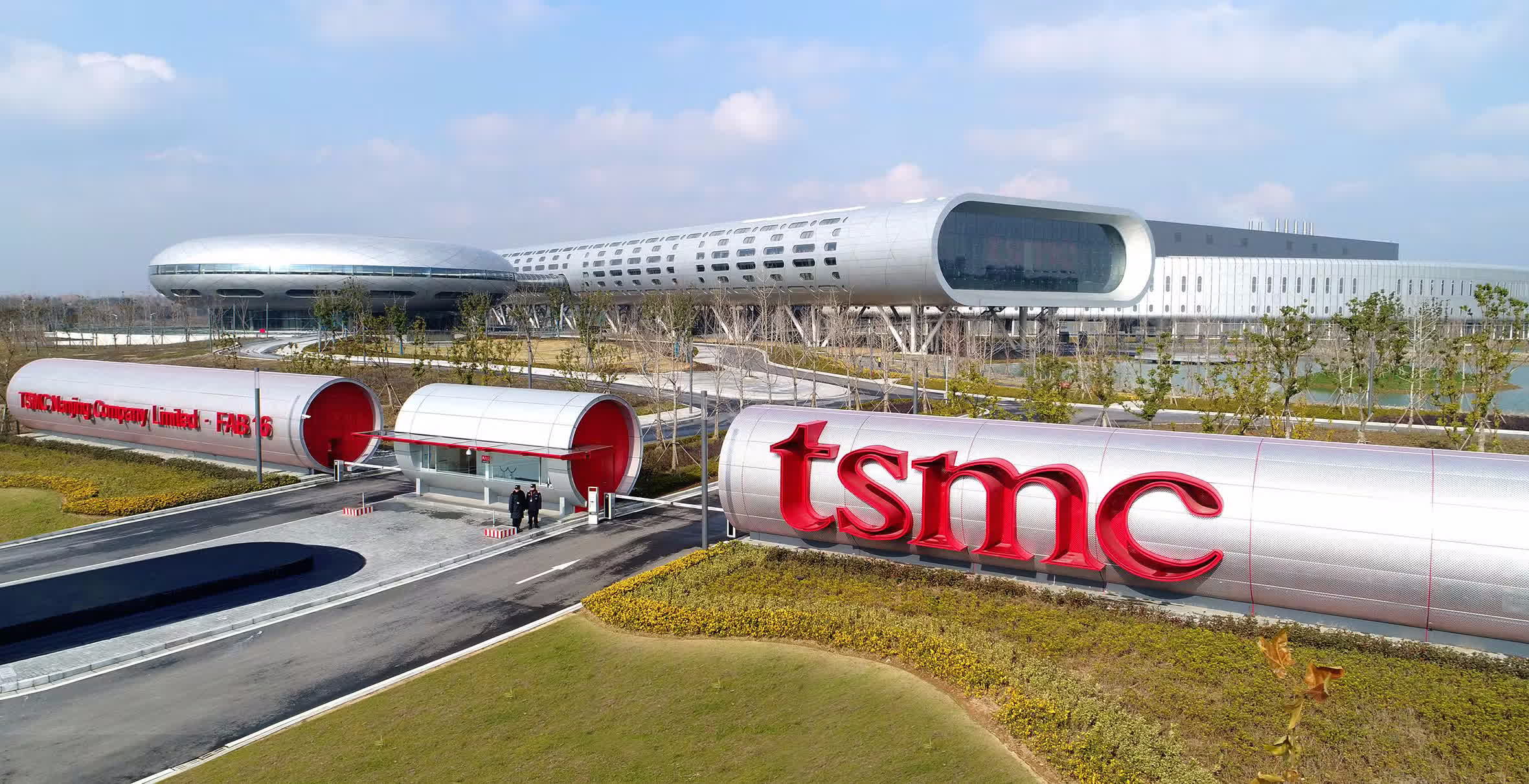In brief: The AI revolution is making Nvidia very, very rich. It's something that TSMC, which handles most of Team Green's high-end chip production, hasn't failed to notice. As such, the company may be considering hiking its prices to benefit from the boom.
TSMC's new chairman, C.C. Wei, dropped a hint to reporters last week that the manufacturer might raise its prices for Nvidia in light of the company's AI-related success.
"I did complain to Nvidia's CEO Jensen Huang – the 'three trillion guy' – that his products are so expensive," Wei said, as reported by Nikkei Asia. "I think those products are really valuable for sure, but I am thinking about showing [him] our value as well."
That mention of 3 trillion is a reference to Nvidia's market cap, which passed the $3 trillion valuation last week to become the second most valuable company ahead of Apple and behind Microsoft. It has since fallen back to third place with a cap of $2.973 trillion.
TSMC is the only producer of Nvidia's advanced AI chips, including Blackwell, that have helped its share price climb 147% this year alone. The Taiwanese giant could decide it wants a larger slice of Nvidia's profit pie, and Wei seemed to suggest a price increase will happen.
"Anyone sitting at home can think [up this strategy]," he said.
TSMC is also dealing with more expensive electricity rates after Taiwan increased prices in April. There's also the issue of inflation leading to higher costs.
"We expect our customers to share some of the higher cost with us, and we already started our discussion with our customers," Wei said.
TSMC later tried to downplay the prospect of price increases for Nvidia. The company told Taiwanese press that its pricing has always been "strategy-oriented rather than opportunity-oriented."
It sounds as if Huang believes TSMC should bump its prices up for customers. He said at Computex that the chipmaker's wafer and service prices are too low, and that "TSMC's contribution to the world and the tech industry is under-represented by its financial results." Huang added that "raising prices is consistent with the value they deliver. I'm very happy to see them succeed."
Huang also said that TSMC is still working out how many chip fabs it will need to meet the level of demand for AI-related hardware in the future. The Nvidia CEO said OpenAI boss Sam Altman's claim that several dozen more fabs were required was "too aggressive for me to believe."
Analyst Morgan Stanley believes that if TSMC did raise its prices and Nvidia accepted them, other AI customers may soon find themselves paying more for their chips.
In April, TSMC warned that microchips produced outside of Taiwan, including those in the US, will incur higher manufacturing costs, which will be passed on to end customers.

